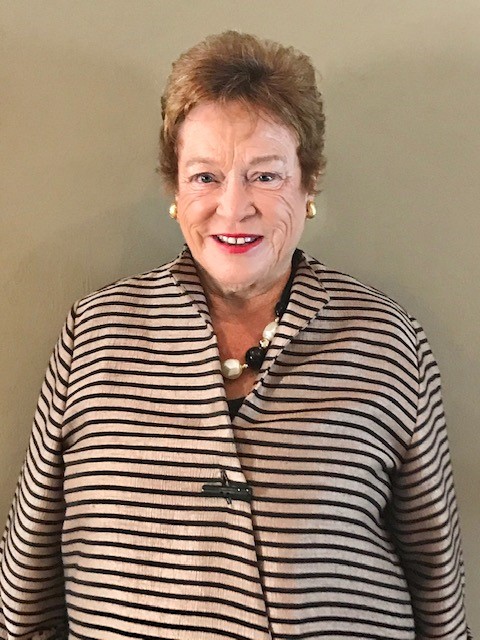Alumna proves Purdue’s longstanding excellence in speech and language sciences

Mary Lou Hazleton
Written by: Tim Brouk, tbrouk@purdue.edu
When Mary Lou Hazleton arrived at Purdue University in 1961, she found her fit in the Department of Speech, Language, and Hearing Sciences (SLHS), taking classes from pioneering faculty members, including program founder M.D. Steer.
The Anderson, Indiana, native absorbed the ins and outs of conditions that are still studied in the program today, such as dysphagia, aphagia, stuttering and other speech problems, and like SLHS students today, she gained clinical experience working with children living with speech and language disorders and difficulties. This one-on-one or small-group work with kids was the most rewarding part of a full Purdue experience for her.
“Working in the clinic was invaluable,” said Hazleton, who chose Purdue despite most of her relatives being Indiana University alumni. “There’s no way to learn this field unless you’re right there with it. That was a very good learning experience.”
After Purdue, Hazleton and her husband, Dick Hazleton, moved to Midland, Michigan, where she worked as a speech therapist for the Saginaw, Michigan, school system for a stint.
“My degree from Purdue, first of all, gave me the confidence to enter the workforce with some great credentials backed by extensive experiences,” Hazleton stated. “I have always found a positive association between Purdue and the profession.”
The Saginaw experience still sticks with her today. She worked with inner city kids, which gave her lessons in diversity and inclusion back when she started in 1965.
“The exposure of possibilities began in my first job,” Hazleton recalled. “I found myself immersed in a true melting pot of students, kindergarten through high school.”
After raising her family, Hazleton earned a master’s degree in communication disorders to become an on-call speech pathologist for three Midland-area hospitals. Her patients ranged from young children to teenagers and adults — working closely with them as they recovered from strokes or head trauma. This work made Hazleton a sound choice for the 2023 Purdue College of Health and Human Sciences’ Distinguished Service Award.
“Every day, we had some kind of a breakthrough,” said Hazleton about her 15 years working in hospitals. “Speech therapy can be needed from birth (until) death, so you get all kinds of people. Being in contact with the patients, you’re trying to bring them back up to the best potential they have. It is just amazing what the human brain can do. It can reconfigure. It can readapt.
“As an on-call therapist, I was able to follow patients from acute care through in-patient rehabilitation and on to outpatient therapies.”
Hazleton remembered working with a patient while he was in a coma. They reconnected after he recovered and was moved to an outpatient program, where he instantly recognized her voice. Her time working with hospital patients throughout their entire recovery was a career highlight she will never forget. She also valued the chance to work beside other healthcare professionals.
“The biggest professional perk in the hospitals gave me the chance to interact with doctors, nurses and other therapists — physical therapists, occupational therapists and cognitive therapists,” Hazleton said. “What a wonderful experience to be part of the whole picture.”
After retirement, Hazleton traveled overseas and now lives in Charlevoix, Michigan, during Michigan’s warmer months and in Naples, Florida, the rest of the year. No matter where she is, though, Purdue and her years in SLHS are always with her.
“I just loved Purdue from day one,” Hazleton said. “I came from a very small high school, and it was like opening a whole new world to me. I tried everything that was there for me.
“I felt at home immediately. This feeling stayed with me for the four years of undergraduate and well into the present.”
Today, Steer lives on in his namesake clinics housed in Lyles-Porter Hall, ran by students just like Hazleton was 60 years ago. While the places and faces have changed, the quality of the program remains. Still, today’s SLHS students “must make the best use of your time at Purdue,” she recommended.
“List your priorities and divide your time wisely for each one,” Hazleton continued. “I think it is also important to take advantage of as many opportunities you can — academically and socially.”